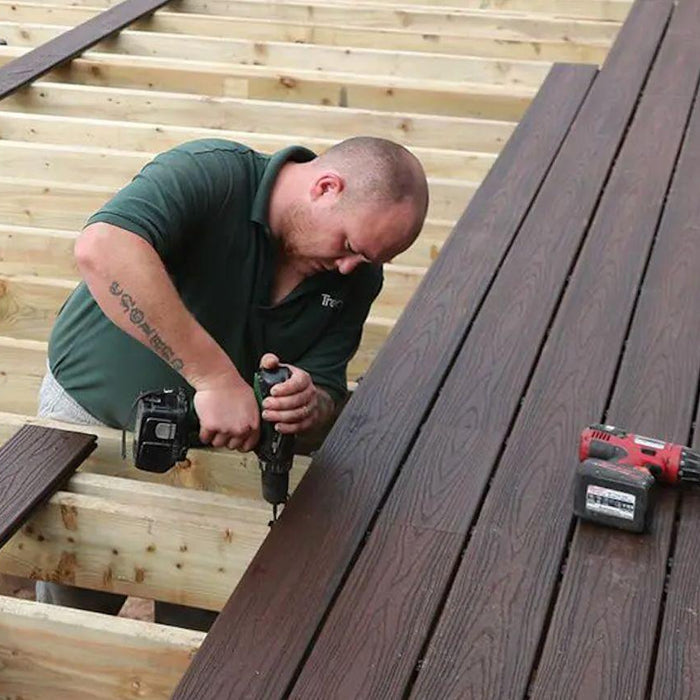In today's ever-evolving world, the pursuit of sustainability has become more than just a trend—it's an essential practice for preserving our planet. When it comes to construction and home improvement, choosing the right materials is crucial not only for the aesthetics of your home but also for the health of our environment. Among these materials, timber stands out for its versatility and appeal, but sustainable sourcing is key. Let's embark on a journey to discover how to source timber responsibly and make informed choices for your projects.
Understanding Sustainable Timber
Perhaps you're planning to add a raised garden pond for those tranquil garden moments, or maybe you're eyeing new decking boards to expand your outdoor living space. Regardless of your project, understanding the importance of sustainable timber will empower you to make the right choices.
What is Sustainable Timber?
Sustainable timber refers to wood that has been harvested in an environmentally responsible, socially beneficial, and economically viable manner. It's about ensuring that forests remain vibrant and productive for future generations while meeting current demands.
Key Features:
-
Regeneration: Trees are replanted or naturally regenerate after harvesting.
-
Biodiversity Protection: Ensures that habitat and biodiversity within forests are maintained.
-
Social Responsibility: Engages local communities and respects workers' rights.
Benefits of Using Sustainable Timber
Choosing sustainable timber for projects such as building your dream deck with 32x150 decking boards can provide several benefits beyond environmental protection.
Environmental Impact
-
Carbon Storage: Trees absorb CO2, helping to mitigate climate change.
-
Reduced Pollution: Sustainable practices reduce environmental pollution.
Economic Advantages
-
Long-term Savings: Although sustainably sourced timber can be initially more expensive, its durability can lead to savings over time.
-
Market Growth: Demand for green products is rising, potentially increasing the value of sustainable timber goods.
How to Identify Sustainable Timber
The challenge often lies in identifying sustainable timber among the plethora of options. Here are some ways to navigate this:
Certification Labels
Keep an eye out for certification marks like:
-
FSC (Forest Stewardship Council): Ensures the wood is sourced from responsibly managed forests.
-
PEFC (Programme for the Endorsement of Forest Certification): Promotes sustainable forest management.
Supplier Transparency
Reputable suppliers will often provide detailed sourcing information. For instance, when browsing through products at platforms like TimberDIY, you can look for transparency in sourcing details.
Ask the Right Questions
Don't hesitate to ask suppliers where the timber comes from, how it was harvested, and whether it's certified.
Incorporating Sustainable Timber into Your Projects
Once you've identified sustainable timber, the next step is integrating it into your project plans.
Designing Your Dream Outdoor Space
Imagine a serene garden moment, perched on a Solid Teak Banana Bench, absorbing nature's beauty. Teak, particularly when sustainably sourced, offers excellent durability and an elegant finish.
Key Considerations:
-
Weather Resistance: Choose timbers like cedar or teak that can withstand various weather conditions.
-
Compatibility: Ensure the timber matches your project's specific needs—be it for a pond, flooring, or furniture.
Building with a Conscience
Using sustainable timber isn't just about the timber itself. Consider the entire life cycle, including:
-
Installation Techniques: Employ methods that extend the life of the timber, such as using the SupaTec SBS Torch-On Sand Underlay for optimal support.
-
Maintenance: Regular care enhances longevity, further reducing environmental impact.
Delivery and Installation Considerations
Efficient delivery and installation processes can amplify the sustainability of your project.
Eco-Friendly Delivery Options
Opt for suppliers who offer reduced-emission delivery options or use recycled packaging materials.
Installation Practices
-
Efficient Construction: Minimise wastage by using precise measurements and cutting techniques.
-
Recycling: Reuse off-cuts or recycle any waste material when possible.
Unique Selling Points of Sustainable Timber
Investing in sustainable timber offers unique advantages that extend beyond tangible benefits.
Aesthetic Versatility
Whether you're installing a raised garden pond or setting up a duo of Polyester Shed Roofing Felt, sustainable timber can elevate the visual appeal of any space.
Connection with Nature
There's something uniquely rewarding about knowing that your choice supports ecological balance, fostering a sense of connection with the natural world.
Contribution to Global Goals
By making sustainable choices, you contribute to broader initiatives aimed at tackling climate change and preserving biodiversity.
Conclusion
Incorporating sustainable timber into your projects is a profound way to contribute to environmental preservation while enhancing the beauty and functionality of your home. From selecting certified woods to considering eco-friendly installation practices, every step counts.
Explore how you can integrate these approaches with the offerings at TimberDIY and make your next project not just a testament to craftsmanship, but also a tribute to nature’s resilience. Let’s build a sustainable future, one timber choice at a time.




